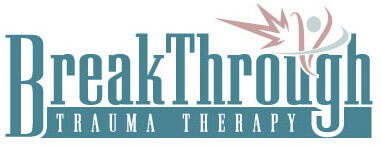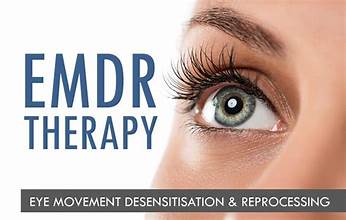EMDR Therapy
Are You Seeking EMDR Therapy As A Way To Overcome A Challenge And Live Your Best Life?
- Do you encounter recurring distressing thoughts and flashbacks from a past event that interfere with daily living?
- Are you tired of always bearing the burden of a traumatic event?
- Has a past experience pushed you to destructive or avoidant behavior like drinking or cutting people off?
Once you’re triggered, you are sent spinning into a whirlwind of emotions, anxiety, and confusion.


Depression
Can feel like you've lost interest in activities you use to love, you have no energy, or you are merely existing - unable to find joy in life.

Anxiety
Can feel like the world is unsafe, people cant be trusted, or at any moment something bad is going to happen.

Insomnia
Can feel like being tired all the time but unable to get to sleep because your mind won't shut off and your body cant relax.
Life can be challenging but sometimes it can throw an experience at you that is nightmarish. Your brain and body can reach its limit in being able to process or recover from that experience despite your best efforts to handle the situation.
Bouncing back from the death of a loved one, financial loss, a broken relationship, or declining health is not easy. Many people struggle to pick themselves up after such life-changing events. It is also possible to suffer from seeing a loved one struggle with their health or witnessing the loss of a loved one and how it can compromise your ability to heal.
You may be trying your best to move on, but the intrusive memories, sudden flashbacks, and nightmares evoke an intense turmoil that keeps you bound to the past. These factors interfere with your work, sleep, relationships, and day to day life. You are constantly anxious about this past situation, worried that it will creep into your present. If you are caught in a whirlwind of thoughts, fears and reminders of the past, you can free yourself from past trauma with help.
You can be free from your past trauma. The pain, embarrassment, fear, helplessness, and exhaustion fizzle out with time. Eye movement desensitization and reprocessing (EMDR) therapy can help you regain your life by helping you to stop hiding or interpreting your present life through the lens of your traumatic experience.


How EMDR Therapy Works
Eye movement desensitization and reprocessing is a technique that involves moving your eyes a certain way when processing trauma. It was primarily a therapy for treating trauma or post-traumatic stress disorder (PTSD). However, it has since become a successful therapeutic option for treating depression, anxiety, and substance use in both adults and children.
EMDR counseling is not your typical talk therapy, where you describe your experience to a counselor. It focuses on altering the emotions, moods, thoughts, and behavior evoked by the traumatic experience.
Your mind and the brain are separate entities. The brain provides the structures and mechanisms for the mind to work. For instance, nerves detect and amass sensations from your thoughts, emotions, and sensory organs to inform your mind.
The mind comprises your thoughts, memories, perceptions, and experiences. Your mind uses brain structures like nerves to transmit, retrieve, store, and process information from your internal and external senses. When you are going through an ordeal, the brain develops glitches in handling the information jumbling the available data.
The main brain structures active during traumatic events are the amygdala, hippocampus, and prefrontal cortex . The amygdala, the brain structure responsible for interpreting sensory information and attaching meaning to experiences, becomes overstimulated during a traumatic event. It sends faulty information to the hippocampus for storage which is why people often feel like they are reliving their trauma. The prefrontal cortex plays a crucial role in cognitive functions, emotional regulation, and controlling impulsive actions. The decline in its functionality can stem from various factors, including aging, stress, certain medical conditions, or lifestyle choices.
The oversensitive amygdala flares every time it picks up sensations relating to the trauma, activating the stress response even when there is no real danger or threat. The hippocampus releases memories, thoughts, and emotions relating to the initial traumatic experience. That is the reason sights, sounds, feelings, touch, and places relating to the trauma evoke an intense reaction.
Unfortunately, every time your amygdala gets activated, the brain builds a stronger pathway, enforcing and worsening your experience. EMDR treatment uses the brain’s mechanism to create, stock, and retrieve memories to help you make sense of what happened, manage the emotions associated with it, and gradually reduce its impact on your daily life and overall well-being.
Schedule a consultation
Reach out here to schedule a free 15-minute consultation so that we can start your journey to healing right away!
There are Many Types of EMDR Treatments
EMDR therapy helps you navigate adversity. Tackling unprocessed memories created during the traumatic experience reduces the severity of the trauma symptoms. It is effective in treating all stress-related psychological disorders.
to help with your recollection of the events of the ordeal. Processing trauma involves organizing thoughts, emotions, and moods related to the experience, using accurate Information to manage its impact.
EMDR Therapy for PTSD
EMDR Counseling has eight phases: 1) history taking and treatment planning, 2) preparation, 3) assessment, 4) desensitization, 5) installation, 6) body scan, 7) closure and 8) reevaluation.
In the first phase, the EMDR therapist takes your history and assesses your past trauma, present stressors, and future objectives. The EMDR counselor then explains what treatment entails and provides resources to help you manage the condition and enhance safety and comfort during therapy.
The EMDR therapist then activates a memory in every session and assesses your thinking , feelings, reactions, and imagery. In the desensitization phase, the counselor guides you to focus on a particular memory as you engage in eye movements. You will develop new thoughts about the experience in the process. Your EMDR counselor will repeat this phase until the memory is no longer distressing.
The installation phase comes after desensitization. Your EMDR therapist guides you to strengthen the positive thought created in the previous stage of treatment. Your therapist will then make you scan your body as you think through the traumatic memory with positive cognition.
The last phase of treatment is closure because the distressful memory becomes resolved. Your EMDR therapist will teach you techniques to help you cope until the next session if the memory is still problematic.
EMDR Therapy for Anxiety
EMDR for anxiety works the same way as EMDR for trauma since it is a stress-related condition. However, this EMDR treatment focuses on the anxiety source, current triggers, and future objectives. It helps you manage your fears and worries over uncertainties and learn to process your thoughts and emotions around stressors.
EMDR Therapy for Depression
EMDR for depression uses the same principles as EMDR for trauma. It focuses on creating positive cognition over thoughts, memories, and feelings that feed your depression. Your EMDR therapist assesses the underlying issues that initiated your depressive mood and the triggers that sustain the condition. They then guide you into developing positive thoughts and associations about the situation instead of focusing on the negative.
EMDR Therapy for Children
We have EMDR counselors that specialize in treating children and adolescents. EMDR for children is an effective intervention for PTSD, anxiety, and depression. This therapy helps them deal with distressing events and develop healthy coping methods.
Trauma alters a child’s growing brain, interfering with their emotional, thought, and behavioral regulation. EMDR treatment enables children to develop resilience and process their negative experiences healthily. Counseling takes place in a safe and secure environment. The EMDR therapist also knows how to handle the child without traumatizing them further.
The EMDR therapist is skilled in supporting the child, ensuring a safe environment, and helping them heal without causing further trauma.
Wherever you are in your journey dealing with anxiety, depression, substance use, or PTSD, this therapy approach is tailored to guide you toward a life that’s freeing and fulfilling.


We Have Answers To Your EMDR Therapy Questions
Is EMDR treatment suitable for kids?
EMDR counseling is safe for children between 4 and 18 affected by trauma or stress. A child’s brain is still developing, and exposure to stress at this tender age impedes this process. Unfortunately, the damage can persist into adulthood without any intervention.
EMDR therapy helps children cultivate healthy emotional, thought, and behavioral patterns. The techniques learned in counseling are still effective in adulthood. The therapist also knows how to support and care for children, and provides age-appropriate solutions.
Is there scientific evidence for the effectiveness of EMDR counseling?
Plenty of evidence exists in research about the efficacy of EMDR treatment. There are randomized control trials that show its impact in reducing the severity of symptoms in PTSD. It is effective in treating stress-related psychological conditions. Studies also show a high success rate in treatment. Your therapist can always modify techniques depending on your response to treatment.
Does trauma rewire the brain and how does EMDR therapy help?
Trauma affects the way the brain processes memories, emotions, feelings, and moods. The brain develops errors while storing information concerning the adverse experiences, suppresses the emotional regulation part of the brain, and becomes extremely sensitive to any stimuli relating to the trauma.
Furthermore, the brain becomes hypervigilant. It actively looks for threats and dangers relating to the trauma. It keeps probing and sending false alarms. Each time the brain retrieves these memories, thoughts, and emotions, it reinforces pathways that support this misleading information. Thus, subsequent reminders evoke even higher degrees of distress. The good news is you can process your trauma healthily with EMDR therapy.
Find an EMDR Therapist Today
You do not need to carry the burden of your trauma, anxiety, or depression alone. EMDR therapy can help you find much relief. We have treatment options available for children, adolescents, and adults. Find help today and begin your journey to a trauma-free life. It is time to start living again and let your past remain where it belongs through EMDR counseling.

Our Team of EMDR Therapists

Dr. Billine Jourdan

Raquel Massaro, LMHC

Westly Francois, LCSW

Phara Taylor, MS, RD, LDN

Dr. Elizabeth Woodruff

Samantha Bardoo, LMHC
Schedule a consultation
Reach out here to schedule a free 15-minute consultation so that we can start your journey to healing right away!






